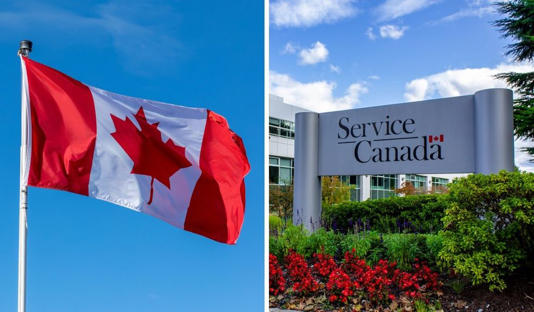Considering the cost of living in Canada has increased significantly due to inflation, Canadian newcomers are certainly feeling the wrath of the economy and are seeking financial aid, particularly those from lower-income families.
The Canada Revenue Agency (CRA) has outlined several government benefits and credits that Canadian newcomers are eligible for upon entering Canada and/or filing their income taxes.
The Canadian government considers you a “newcomer” if you are a permanent resident, refugee, or temporary resident. In fact, the CRA indicated that they consider someone a “newcomer to Canada for the first year you are a resident of Canada.”
The CRA said that newcomers become residents of Canada for income tax purposes and when they have enough residential ties in Canada. “You usually establish residential ties on the day you arrive in Canada.”
Furthermore, it’s important to note that your residency status for income tax purposes is different from your immigration status.
The Canada Revenue Agency suggests getting a social insurance number (SIN) upon arrival. A SIN is a nine-digit number that is personal, confidential and unique to an individual.
In Canada, residents require a SIN to receive benefits and credits, work and open most types of bank accounts.
If Service Canada is unable to give you a permanent or temporary SIN, the CRA may give you a temporary tax number (TTN) you may use to get benefits and credits, file taxes, and sign up for CRA’s online services.
So, which benefits and credits are Canadian newcomers eligible for? Here’s everything you need to know per the CRA.
GST/HST Credit
The goods and services tax/harmonized sales tax (GST/HST) credit is designed to alleviate the tax burden on your purchases.
If you meet the criteria of being 19 years or older, having a low or modest income, and qualifying for eligibility, you can receive tax-free quarterly payments.
Canada Carbon Rebate
The Canada Carbon Rebate, formerly referred to as the Climate Action Incentive Payment (CAIP), is a tax-exempt sum provided to assist qualifying individuals and families in mitigating the expenses associated with federal pollution pricing.
This rebate comprises a fundamental sum along with an additional supplement allocated to residents residing in small and rural communities.
Canada Child Benefit (CCB)
The Canada Child Benefit (CCB) is administered by the Canada Revenue Agency (CRA). It is a tax-free monthly payment made to eligible families to help with the cost of raising children under 18 years of age.
The CCB may include the child disability benefit and any related provincial and territorial programs. To apply for the CCB, you must meet all of the following conditions:
- You live with a child who is under 18 years of age and you are primarily responsible for the care and upbringing of the child.
- You are a resident of Canada for tax purposes.
- You or your spouse or common-law partner must be any of the following:
- a Canadian citizen
- a permanent resident
- a protected person
- a temporary resident who has lived in Canada for the previous 18 months and who has a valid permit in the 19th month other than one that states “does not confer status” or “does not confer temporary resident status”
- an individual who is registered, or entitled to be registered, under the Indian Act.
Various provincial and territorial benefits & credits
Canadian newcomers may also be able to benefit from provincial credits and benefits, too. Depending on which Canadian province or territory you reside in, you can claim certain benefits that could help you financially.
Provincial benefits and credits include the family allowance program, the Ontario Trillium Benefit, the solidarity tax, the Alberta child and family benefit, the British Columbia family benefit, and the Saskatchewan low-income tax credit, to name a few.
How will you get your money?
According to the CRA, Canadian newcomers should sign up for direct deposit to have their funds deposited directly into their Canadian financial institution account. This method is swift, and secure, and ensures you never overlook a payment via mail.
Alternatively, if you opt out of direct deposit, your payment will be issued to you via cheque and delivered through the postal service.
When you need to file your taxes?
Per the CRA, if you resided in Canada for only a portion of the year, you’re required to file a tax return if:
- You owe taxes.
- You wish to claim a refund.
During your initial year in Canada, it’s unnecessary to file a tax return to access benefits and credits. However, to sustain benefits and credits beyond your first year in Canada, including situations with no income, you must file a tax return.
Once you have filed your first return, you may be eligible to receive more tax credits and benefits.
The tax deadline in Canada is April 30, 2024.
This article’s cover image was used for illustrative purposes only.
Source: MTL Blog







